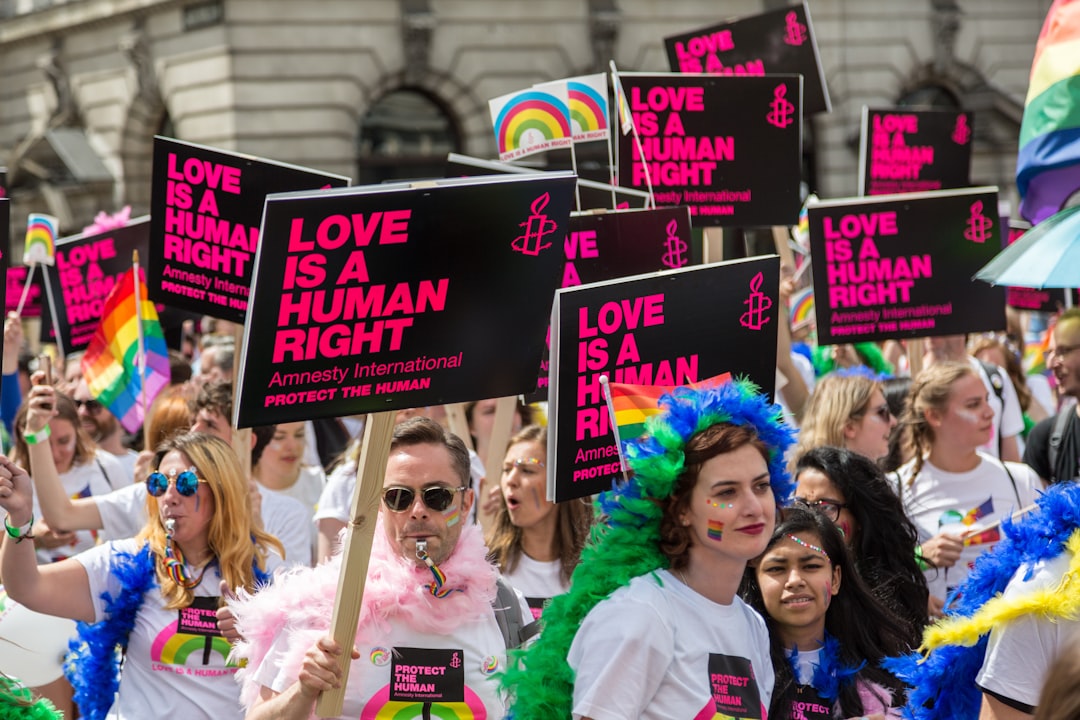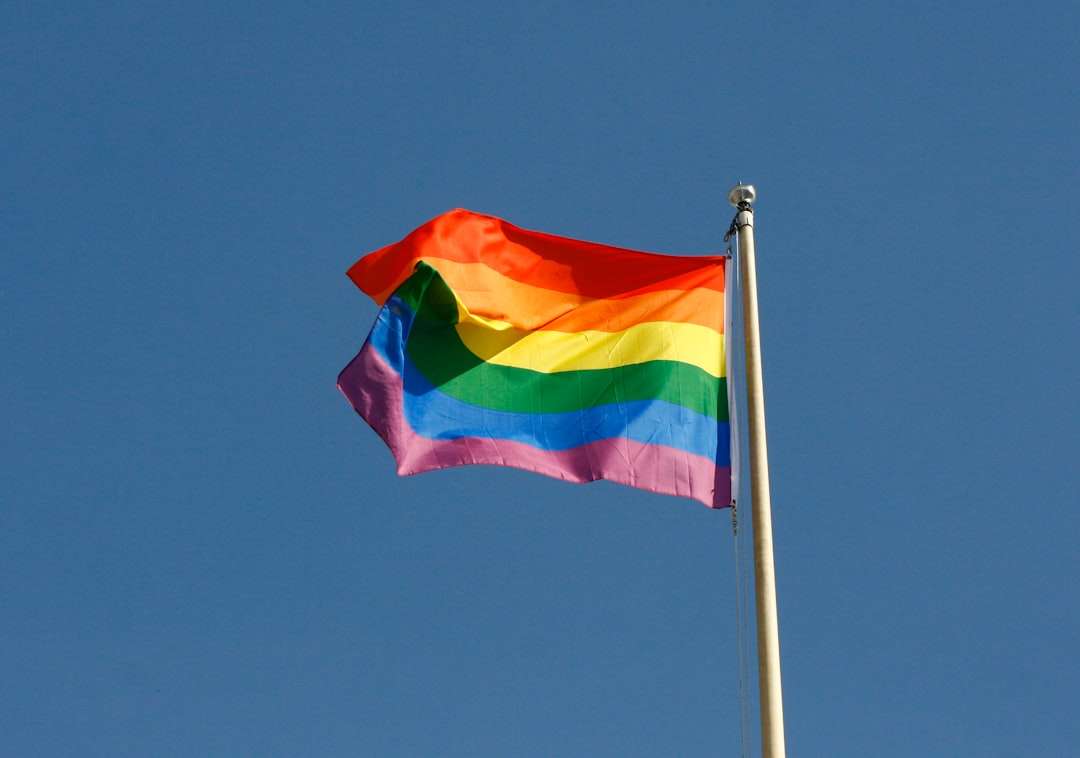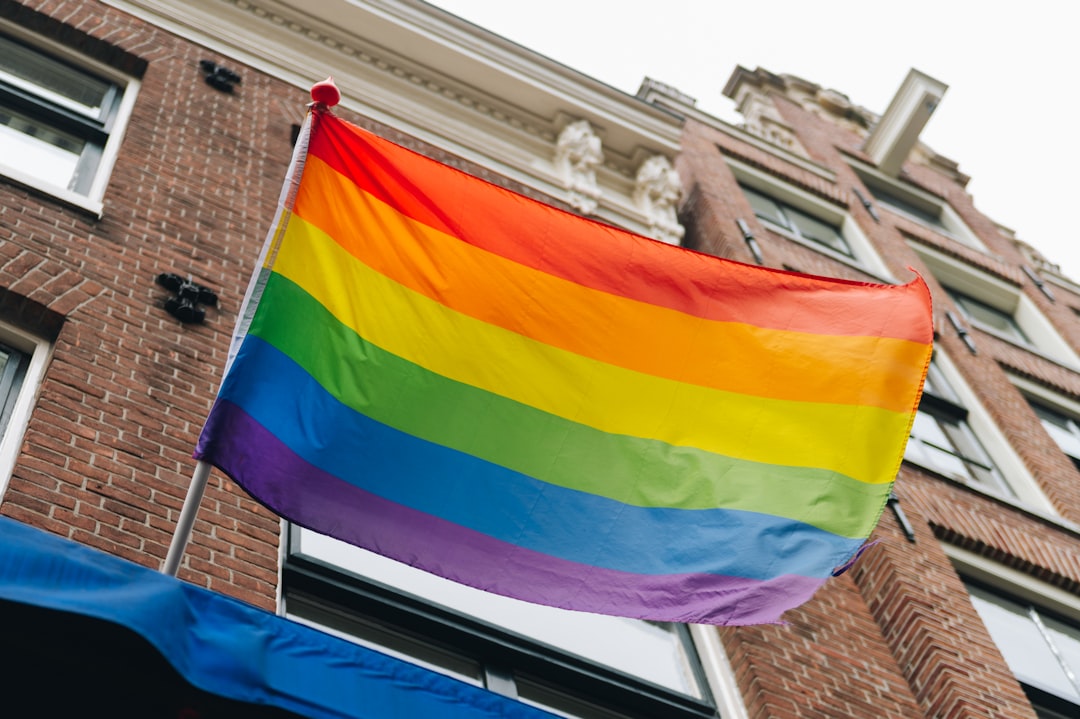Overview of LGBTQ+ Housing Disparities in Rural Areas
LGBTQ+ individuals in rural areas face significant challenges due to the lack of inclusive housing policies and resources tailored to their needs. These challenges not only hinder their access to safe and secure housing but also exacerbate the risk of homelessness, particularly among LGBTQ+ youth and individuals of color. For instance, the limited availability of LGBTQ+-friendly shelters and housing options in rural regions significantly impacts transgender individuals, who often struggle to find suitable and affirming accommodations, further amplifying their vulnerability to homelessness.
Moreover, the social and political landscape in rural America plays a pivotal role in shaping the acceptance and rejection of LGBTQ+ individuals within these communities. Structural differences, such as the lack of explicit nondiscrimination protections and prevailing religious exemption laws, create an environment where LGBTQ+ individuals face discrimination with fewer safeguards and resources compared to their urban counterparts. These disparities not only pose challenges related to housing disparities but also affect the overall well-being and safety of LGBTQ+ individuals, highlighting the urgent need for targeted interventions and supportive initiatives to address housing disparities in rural areas.
Additionally, research by the Movement Advancement Project emphasizes the unique challenges faced by LGBTQ+ individuals in rural areas, shedding light on the structural differences that contribute to disparities in housing access and safety. The report underscores the need for comprehensive strategies to address these issues and promote inclusivity in rural communities.
The Unique Challenges in Rural Areas
Living as an LGBTQ+ individual in rural areas presents a myriad of unique challenges that significantly impact housing security. One primary obstacle is the limited access to supportive services and resources tailored to the needs of LGBTQ+ individuals in rural communities. For instance, individuals may encounter a lack of specialized mental health support, community centers, or advocacy groups focused on LGBTQ+ issues, making it challenging to find the necessary assistance when facing housing discrimination or homelessness. Furthermore, the absence of LGBTQ+-friendly shelters and housing options that cater to the specific needs of transgender individuals stands out as a critical challenge in rural settings.
In rural America, LGBTQ+ individuals often face discrimination with fewer protections and resources compared to their urban counterparts, highlighting the pressing need for comprehensive legal frameworks that safeguard the housing rights of LGBTQ+ individuals in these communities. By understanding the specific challenges faced by LGBTQ+ individuals in rural areas, it becomes evident that targeted interventions and inclusive policies are essential to address disparities and promote a more equitable housing landscape.
 Impact on Well-being, Safety, and Mental Health
Impact on Well-being, Safety, and Mental Health
Housing disparities in rural areas have profound implications for the well-being, safety, and mental health of LGBTQ+ individuals. The lack of inclusive housing policies and resources exacerbates the challenges faced by this community, leading to increased mental health issues. For instance, LGBTQ+ youth and people of color in rural regions experiencing homelessness encounter discrimination, lack of support systems, and economic insecurity, all of which significantly impact their mental well-being. The absence of LGBTQ-friendly shelters and housing options tailored to the specific needs of transgender individuals in rural areas further compounds the housing disparities.
Furthermore, the unique social and political landscape in rural America plays a pivotal role in shaping the acceptance and rejection of LGBTQ+ individuals, underscoring the necessity for tailored support and inclusive housing initiatives to address these disparities effectively. Research by the Mecklenburg Housing Data highlights the higher rates of homelessness among LGBTQ+ individuals in rural areas and the critical need for comprehensive solutions to promote inclusivity and address housing discrimination.
 Role of Local and National Organizations in Addressing LGBTQ+ Housing Disparities
Role of Local and National Organizations in Addressing LGBTQ+ Housing Disparities
Local and national organizations play a crucial role in addressing LGBTQ+ housing disparities in rural areas by spearheading initiatives to provide essential support and resources for LGBTQ+ individuals facing housing challenges. For example, the CCP LGBTQ+ Life Center and Time Out Youth are actively involved in offering safe and affirming spaces for LGBTQ+ individuals experiencing homelessness. By creating these supportive environments, these organizations help address the unique needs of LGBTQ+ individuals in rural communities, where resources may be scarce. National efforts by renowned organizations like the National Center for Lesbian Rights (NCLR) and the U.S. Department of Housing and Urban Development (HUD) are crucial in combatting housing disparities. NCLR’s Rural Pride Campaign focuses on addressing economic insecurity and the lack of protections for LGBTQ individuals living in rural America, aiming to amplify the voices of LGBTQ+ communities in these regions.
Additionally, HUD’s initiatives aim to remove barriers to stable housing for LGBTQ+ individuals, emphasizing the significance of inclusive housing policies in rural areas to ensure equal access to safe and affirming housing options. These collective efforts highlight the importance of collaborative endeavors between local and national organizations in advocating for LGBTQ+ housing rights and promoting inclusivity in rural communities. The National Center for Lesbian Rights’ advocacy efforts underscore the need for inclusive housing policies and comprehensive solutions to combat discrimination and provide safe housing options for LGBTQ+ individuals in rural areas [4].
Legal Framework and Policy Recommendations
In addition to emphasizing the importance of anti-discrimination laws and LGBTQ-inclusive housing policies to combat discrimination and ensure safe housing options for LGBTQ+ individuals, it is essential to delve into the specific challenges faced by LGBTQ+ individuals in rural areas. These challenges include limited access to supportive services, lack of LGBTQ-friendly shelters tailored to the needs of transgender individuals, and a social and political landscape that greatly influences the acceptance or rejection of LGBTQ+ individuals. For instance, LGBTQ+ individuals in rural areas often encounter discrimination with fewer protections and resources compared to their urban counterparts. This disparity highlights the pressing need for comprehensive legal frameworks that safeguard the housing rights of LGBTQ+ individuals in rural communities.
Understanding the significance of anti-discrimination laws in addressing housing disparities and promoting inclusivity involves recognizing the profound impact these laws can have on the well-being and safety of LGBTQ+ individuals. By advocating for LGBTQ-inclusive housing policies, it becomes possible to combat discrimination effectively and provide a supportive environment where LGBTQ+ individuals can thrive without fear of prejudice or unequal treatment. For instance, the absence of inclusive housing policies can perpetuate housing discrimination, contributing to increased mental health challenges among LGBTQ+ individuals in rural areas. Therefore, implementing and enforcing anti-discrimination laws and LGBTQ-inclusive housing policies are crucial steps towards creating a more equitable and inclusive housing landscape for LGBTQ+ individuals in rural regions.
Initiatives to Address the Disparities and Promote Inclusivity
In rural areas, implementing initiatives that focus on combatting LGBTQ homelessness is vital to address the disparities faced by LGBTQ+ individuals. For instance, local organizations like the CCP LGBTQ+ Life Center and Time Out Youth have been instrumental in providing safe and affirming support for LGBTQ individuals experiencing homelessness. By offering tailored solutions and targeted resources, these organizations play a crucial role in ensuring the well-being and safety of LGBTQ individuals in rural communities. Moreover, the National Center for Lesbian Rights (NCLR) has spearheaded the Rural Pride Campaign to elevate LGBTQ voices in rural America and tackle issues such as economic insecurity and the lack of protections for LGBTQ individuals. By organizing events like the Vermont Rural Pride, NCLR actively engages with rural LGBTQ communities to understand their unique challenges and advocate for inclusive policies. These initiatives not only promote inclusivity but also aim to combat discrimination and create a more supportive environment for LGBTQ individuals in rural regions.
Furthermore, NLIHC’s advocacy efforts emphasize the importance of utilizing inclusive language and frameworks when advocating for LGBTQ+ housing rights in rural areas. By raising awareness about housing disparities and pushing for policy changes, NLIHC contributes to the ongoing fight for equality and inclusivity in housing. These combined efforts highlight the significance of community-driven initiatives and national advocacy organizations in addressing LGBTQ+ housing disparities in rural America. The Movement Advancement Project’s report underscores the need for collaborative efforts to promote LGBTQ+ inclusivity and combat discrimination in rural areas, emphasizing the importance of comprehensive solutions and targeted interventions to address housing disparities effectively.
 Funding and Resources for Affordable Housing Programs
Funding and Resources for Affordable Housing Programs
The lack of inclusive housing policies and resources in rural areas poses a significant challenge for LGBTQ+ individuals, leading to higher rates of homelessness among this community, especially LGBTQ+ youth and people of color. These disparities emphasize the urgent need for increased funding for affordable housing programs tailored to address the specific needs of LGBTQ+ individuals in rural regions. For instance, the US Interagency Council on Homelessness (USICH) has set a goal to reduce homelessness by 25% by 2025 through initiatives like the Initiative to Address LGBTQI+ Homelessness, aiming to provide support and stable housing options for LGBTQ+ communities.
One example of the impact of limited resources is the lack of emergency or transitional shelters specifically designed for LGBTQ+ individuals, particularly transgender individuals, in rural areas. This gap in services further exacerbates the challenges faced by LGBTQ+ homeless individuals, including discrimination, lack of support systems, and economic insecurity. By investing in affordable housing programs that cater to the unique needs of LGBTQ+ individuals in rural communities, we can work towards bridging the housing disparities and promoting a safer and more inclusive environment for all. Increased funding not only addresses the immediate housing needs of LGBTQ+ individuals but also contributes to their overall well-being and safety in rural regions.
How Arbor Move Real Estate Team Supports LGBTQ+ Housing Needs
The Arbor Move Real Estate Team goes above and beyond to support LGBTQ+ individuals in the housing market of Ann Arbor by providing specialized services tailored to their unique needs. For instance, they understand the importance of inclusive housing options and work diligently to ensure that LGBTQ+ clients feel welcomed and supported throughout the buying or selling process. This commitment to excellence extends to fostering relationships with reputable lenders, inspectors, and title companies who share their values of inclusivity and respect for all clients, regardless of sexual orientation or gender identity.
Moreover, the Arbor Move Real Estate Team’s dedication to LGBTQ+ housing needs is exemplified through their proactive approach to eliminating stress and creating a seamless experience for their clients. By offering top-tier professional resources and guidance, they empower LGBTQ+ individuals to make informed decisions about their housing options and navigate the real estate market with confidence. Through their inclusive practices and unwavering support, the Arbor Move Team sets a high standard for LGBTQ+ inclusivity in the housing sector, ensuring that all clients receive the respect and personalized attention they deserve.
For LGBTQ+ individuals in Ann Arbor seeking housing solutions, the Arbor Move Real Estate Team stands out as a beacon of support and understanding. By prioritizing inclusivity, professionalism, and personalized service, they not only assist clients in finding their dream homes but also create a safe and welcoming space where LGBTQ+ individuals can feel valued and respected. To experience the exceptional service and support provided by the Arbor Move Team, visit their website today and take the first step towards finding your perfect home in the vibrant community of Ann Arbor.
Community Stories and Successes in Addressing LGBTQ+ Housing Disparities
In rural areas, LGBTQ+ individuals have faced significant challenges due to housing disparities, but there have been inspiring success stories of individuals and organizations working to address these issues. For example, in a small town in the Midwest, a group of LGBTQ advocates successfully lobbied local policymakers to implement inclusive housing policies that prohibit discrimination based on sexual orientation and gender identity. This initiative not only provided legal protections but also created a more welcoming environment for LGBTQ+ individuals seeking housing in the area. By sharing these stories of progress and resilience, the community has been able to inspire others to take action and advocate for change.
Moreover, the positive impact of inclusive housing policies and supportive services cannot be understated. In another rural community, a local LGBTQ+ organization partnered with affordable housing agencies to develop LGBTQ-friendly shelters tailored to the needs of transgender individuals. This collaborative effort not only provided safe housing options but also created a sense of belonging and support for LGBTQ+ individuals facing housing insecurity. By offering tailored resources and services, the community witnessed a significant improvement in the well-being and safety of LGBTQ+ individuals, highlighting the crucial role of inclusive housing policies in fostering a more equitable and supportive living environment.
These community-driven initiatives reflect the advocacy-driven efforts to promote LGBTQ+ inclusivity and combat housing discrimination in rural regions. By amplifying the voices of LGBTQ advocates and allies, these initiatives have sparked important conversations, raised awareness about housing disparities, and paved the way for meaningful change. Through collaboration, education, and grassroots activism, communities have taken significant strides towards creating a more inclusive and affirming environment for LGBTQ+ individuals in rural areas. These success stories serve as a testament to the power of community-driven action in addressing housing disparities and promoting equality for all.
 Encouraging Advocacy and Support for LGBTQ+ Housing Rights
Encouraging Advocacy and Support for LGBTQ+ Housing Rights
It is crucial for individuals to advocate for the implementation of more inclusive housing policies to support LGBTQ+ housing rights in rural areas. By raising awareness about the challenges faced by LGBTQ+ individuals in accessing safe and affirming housing options, we can work towards creating a more inclusive environment for all community members. For instance, highlighting the disparities in housing access for transgender individuals in rural regions can shed light on the specific needs that must be addressed to ensure equality and safety for all.
Furthermore, taking action to support LGBTQ+ housing rights can have a lasting impact on the well-being and safety of individuals in rural communities. By advocating for anti-discrimination laws, LGBTQ-inclusive housing policies, and increased funding for affordable housing programs, we can work towards creating a more equitable housing landscape for everyone. Organizations like the National Center for Lesbian Rights and NLIHC are actively engaged in promoting LGBTQ+ inclusivity in housing and offer valuable resources for those looking to get involved in advocacy efforts. To learn more about how you can contribute to this important cause and to access professional support for your housing needs, visit the Arbor Move Real Estate Team’s website at https://arbormove.com/.

